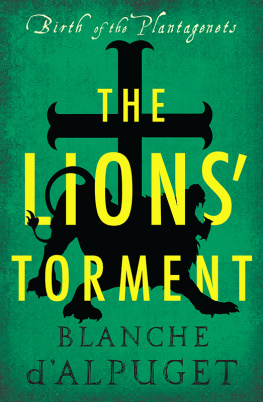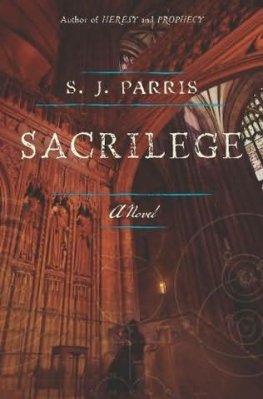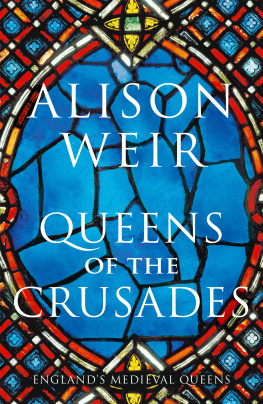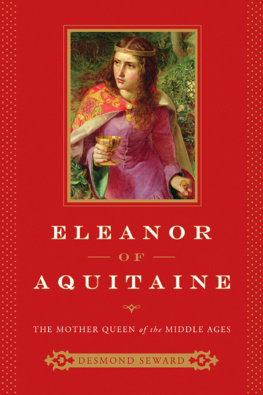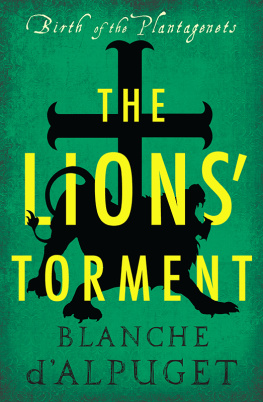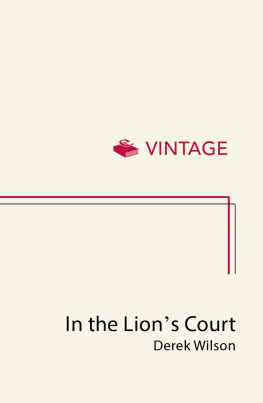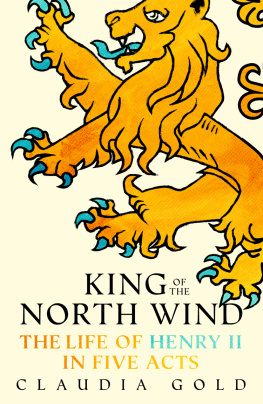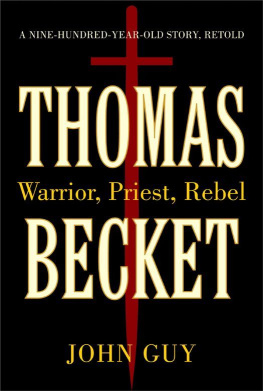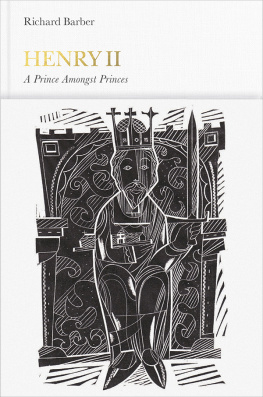
Blanche dAlpuget is an acclaimed novelist, biographer and essayist. She has won numerous literary awards, including the inaugural Australasian Prize for Commonwealth Literature in 1987. Her books include Mediator: A Biography of Sir Richard Kirby (1977); Monkeys in the Dark (1980), which won the PEN Jubilee Award; Turtle Beach (1981), which won The Age Novel of the Year Award and the South Australian Premiers Award; Robert J. Hawke: A Biography (1982), which won the New South Wales Premiers Award; Winter in Jerusalem (1986); and White Eye (1993). She has twice won the Braille Book of the Year award, and Turtle Beach was made into a feature film in 1992 featuring Greta Scacchi and Jack Thompson. All her novels have been translated into other languages.
The Birth of the Plantagenets series by Blanche dAlpuget
The Young Lion
The Lion Rampant
The Lions Torment
TO COME
The Lioness Wakes
Her Cubs Roar

Ventura Press
PO Box 780, Edgecliff
New South Wales, 2027 Australia
www.venturapress.com.au
Copyright Blanche dAlpuget, 2019
All rights reserved. No part of this book may be reproduced or transmitted in any form or by any means, electronic or mechanical, including photocopying, recording or by any other information storage retrieval system, without prior written permission from the publisher.
Cover design by Design by Committee
Map artwork by Stephen Dew
Page design, family tree and typesetting by Shaun Jury
Typeset by Working Type
Typeset in Dante
ISBN: 9781925384802 (paperback)
ISBN: 9781925384819 (ebook)

AUTHORS NOTE
This book uses the techniques of a novel to retell one of historys most notorious murders. With the exception of transients, plus two men and a pair of ladies maids, all the named characters are drawn from contemporary accounts and almost every event described happened in some form, or is employed to delineate a character. Naturally, to turn history into a novel I have been obliged to dramatise and invent descriptions of some actions and players to illustrate the behaviour and morals of that era. In many aspects they were vastly different from those of the twenty-first century. Even coastlines have shifted. In England the town of Sandwich was on the seaside, as was the castle of Caen in France. Now both are inland. However, even a cursory reading of events in the twelfth century reveals that ambition, political conniving, avarice and family feuds have resisted change.
DRAMATIS PERSONAE
Henry II: King of England, Duke of Normandy and Aquitaine, Count of Anjou and Maine; son of Geoffrey the Handsome, Duke of Normandy (deceased)
Eleanor: Queen of England, former Queen of France, Duchess of Aquitaine, wife of Henry
Empress Matilda: Henrys mother, widow of the Emperor of Germany, widow of Geoffrey, Duke of Normandy
Hamelin the Merlin: Henrys illegitimate brother
Viscount William: Henrys younger brother
Geoffrey: Henrys eldest child, illegitimate son from his first wife Rachel
Princes Henry, Richard, Geoffrey and John: legitimate sons of Henry and Eleanor
Princesses Matilda, Eleanor and Joan: legitimate daughters of Henry and Eleanor
Louis VII: King of France, Eleanors ex-husband
Constance of Castile: Louis Queen
Adela of Champagne: Louis Queen
Philip Augustus, God Given: Louis son
Philip: Count of Flanders, Henrys cousin
Barbarossa: Holy Roman Emperor, King of Germany, overlord of Burgundy
Rainald: Barbarossas Chancellor and Archbishop of Mainz
Pope Alexander III: often in exile from Rome
Malcolm: King of Scotland
Isabel: Countess of Surrey, widowed sister-in-law of King Henry
Thomas Becket: Chancellor of England
Robert de Beaumont: Earl of Leicester, royal justiciar
Richard de Lucy: royal justiciar, a baron
Richer de lAigle: a degenerate baron
Roger de Pont Lvque: Archbishop of York, enemy of Thomas Becket
Richard: Henry IIs linguist, code-breaker and spy
Richard de Brito: vassal of Viscount William
Theobald: Archbishop of Canterbury
Gilbert Foliot: Bishop of Hereford, later London
Henry Blois: Bishop of Winchester
John of Salisbury: scholar
Herbert of Bosham: scholar
Douglas: Scottish highland warrior and a merlin (shaman)
Orianne: Queen Eleanors personal maid
Hilde: personal maid to the Countess of Surrey
The Normans


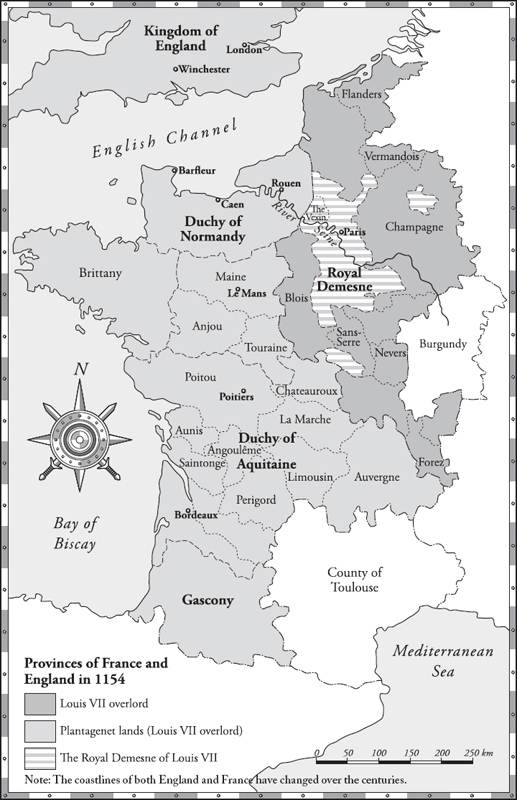

CHAPTER ONE
The snow had stopped falling, leaving the world outside enchanted, every crease erased to a beguiling, smooth whiteness. Shafts of sunlight changed trees into glittering miniature castles. At the top of the hill from which their wagon had descended, the palace of Rouen swelled to a luminous mountain from which smoke wandered into the hushed, still air. The vehicle jolted across a bridge behind a pair of huge horses warmed in shaggy winter coats. Iron wheels creaked softly; hooves fell like paws on the planks. As the wagon jerked forward, the air shivered with tinkling harness bells.
Baron Richer de lAigle the Eagle stroked his white lapdog. The die is cast, you say?
The second man, his head resting on the wooden backboard of the cabin, his body collapsed among cushions, groaned. He was a few years younger than his aristocratic companion, who persisted, Dyou recall who first used that expression, alea iacta est? Receiving no reply, he answered his own question. Julius Caesar, darling. At the moment he decided to attack Rome.
Thomas Becket, Chancellor of England and Archdeacon of Canterbury Cathedral, began to weep. Now you torment me. Caesar marched to victory. Im flung out like garbage. Expelled from court. Ruined.
He suddenly banged his head against the back of the wagon. He never loved me! He only pretended. I adored him. I thought of him day and night his beauty, his strength, his strategic cunning, his courage in battle; how to please him, how to help him reign. He filled a castle to the brim with his vitality and animal energy. Now hes destroyed me. If you could see inside my chest, youd see his dagger in my heart.
The wagoner heard the thud of the Chancellors head against the cabin and wondered if he should rein in the horses. Perhaps one of the lords had fallen ill and needed help.
Becket ripped off his fur cap. His bejewelled fingers tore at his hair as he descended further into misery. I was seven years old when my mother told me, Tom, one day youll be the greatest man in England. And now, at almost forty, what am I? A worm, squashed into the mud. Six years of my life wasted on the liege lord I worshipped. Richer, I stand on the edge of an abyss.
Next page
